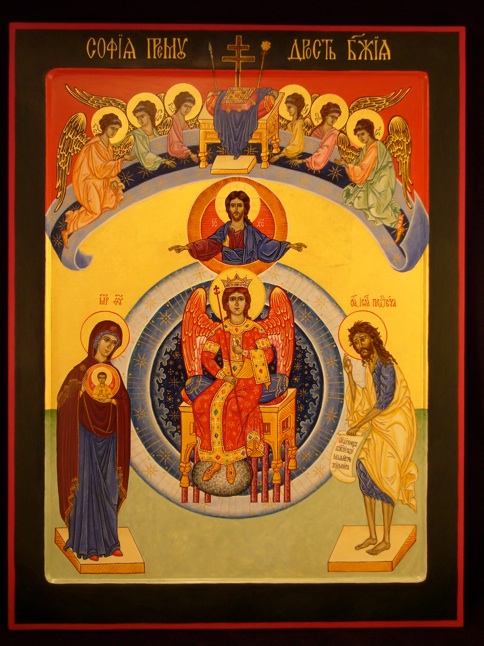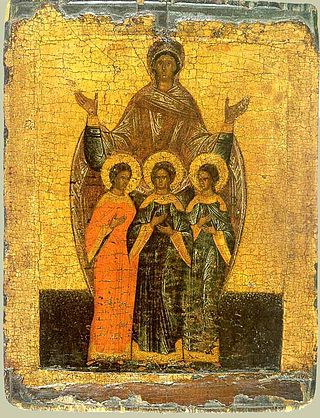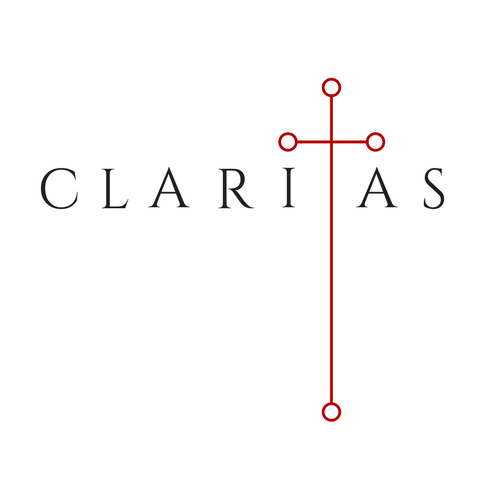From where does our worldview come ? If we are worried about the philosophical errors of modernity it would be helpful to be able to answer this question.
If all right philosophy is derived from the adoption of right premises, the question then reduces to: how do we choose the axioms, the foundational truths, upon which the whole edifice is built?
The simple answer, it seems to me, is that most people just choose what looks good to them. It is a somewhat arbitrary process, an act of faith of sorts. Discursive reason does have a part to play in this but in my experience it is used most commonly to validate the intuitive choices already made, rather than to investigate their validity with a truly open mind.
Consequently, however rational and well worked out we think we present the case for the Christian worldview, unless people are ready to listen we are unlikely to get anywhere.
If we wish to change people’s minds then there are two approaches. One is to examine their worldview rationally and point out any contradictions. As mentioned, this is least likely to convince, simply because on the whole people don’t want to listen. If people do want to listen it might be because they are facing a crisis by which, in some way, the contradictions or inadequacies of their current worldview are slapping them in the face.
But even then I suggest that most will still only be prepared to listen if the second approach is taken as well. That is, people must be presented with a set of premises that are better – more attractive – than the ones they already have.
How can we do this?
I would say that this is what the method of the New Evangelization, as described by Benedict XVI, is aiming to do. (I have written an article about this, here).
For Catholics, the strongest presentation of these premises is encountered in the person of Christ in the liturgy. Through this encounter, because we are in relation with Truth, we are more likely to respond with an acceptance of the basic assumptions of, for example, the nature of existence in regard to all that we perceive around us. We say: I am – You are – it is. If this were to happen, in one stroke, the radical skepticism of much of modern philosophy would be banished; and by this we can accept the ideas of objective truth, beauty and goodness.
If this is right, then we can say that the acceptance of the pattern of truth that is the foundation of all good philosophy is made possible by the acceptance of the love of God. For to know Christ we must love Him. As I described in a recent article, the place where this love is most powerfully offered to us is in the liturgy and the acceptance of this love is an act that is termed eros. (See A Reflection on Eros, Acedia and Christian Joy.)
I suggest, therefore, that the best preparation for the study of philosophy for Catholics and the best defense we have against attraction to the errors of modern philosophy is offered to us in the sacred liturgy. That being so, it places a liturgical and mystagogical catechesis, which to my mind is one that is grounded in Sacred Scripture, as a priority in a Catholic education. This point has been made before. Following the work of Leo XIII (Providentissimus Deus), Pius X stressed the importance of the study of Scripture in the formation of priests in his letter Quoniam re biblica.
What about the unbaptised and those who never make it into church? How do we reach them?
The answer is that we must present Christ to them. Again this goes to Benedict XVI’s little paper on the New Evangelization. We must become supernaturally transformed and partake of the divine nature – a pixel of light in the transfigured mystical body of Christ, the Church. Then when we relate to others we present them, in some way, in the person of Christ. People will see the pattern of love, that is the foundation of good philosophy in us and be attracted to it…or that’s the hope.
Once presented with Truth, people are free to either adopt or reject what they see, but they are unlikely ever to adopt it if they are never presented with it!
It is possible to discern dimly, the pattern of Christ through creation. The ancient Greeks did so, as we know, through the beauty of the cosmos. But the cosmos does not reveal it as fully as the Church does.
This is why I would say that there is no true philosophy without the Faith, grace and the supernatural; and a lover of true wisdom is always a lover first of divine wisdom.
The good philosopher is really a philohagisopher!

Above, an icon of the personification of Holy Wisdom; and below: an ancient Russian icon of Holy Sophia with her three daughters, Faith, Hope and Love


I don’t agree. Philosophy is not founded in divine revelation, and that’s why liturgy and theology shouldn’t be presented as somehow “preparatory” to its study. Philosophy is the study of things on the basis of natural reason alone. The supernatural is founded upon the natural, not the other way round.
LikeLike
I wonder then, if that’s the case, how do you explain the difference in worldviews? I am suggesting that people choose different axioms upon which subsequently, using natural reason, they construct their philosophy. The question I am trying to address is, why doesn’t everyone choose the same axioms? What influences their choice?
LikeLike
“Choosing different axioms”? And on what basis should this choice be made? True philosophers don’t choose axioms, That would be something quite arbitrary and thus unacceptable from the viewpoint of natural reason. Natural reason can only accept principles which are self-evident or unavoidable.
LikeLike
Thank you for this Ronald. The article is about developing a philosophy of life, a ‘worldview’ that people actually live by, so to speak which in my view is not limited to truths that are accessible by natural reason. I would say that in my observation people do not order the pattern of their lives by natural reason alone. There could be no Christian faith without revelation, for example. And in practice the two go hand in hand, knowledge of one affects the other, modifying and enriching. Whether it is the dogmas of the Christian faith or just assumed truths about life that we don’t have the time to establish from first principles, I’m trying to recall, but I think everyone with whom I have had sufficient contact to make such a judgment has some. You may be different.
In regard to philosophy as a discrete academic pursuit, which seems to be your concern here – I’m not sure that your criterion is universally accepted within the field of philosophy. I don’t claim to be an expert on this at all, so tell me if I’ve got it wrong, but my understanding is that there are two streams of thought in most of today’s philosophy departments which are termed foundationalism and coherentism. It seems that your approach comes under the first heading? How does each philosopher decide which they think is the best, I wonder?
LikeLike